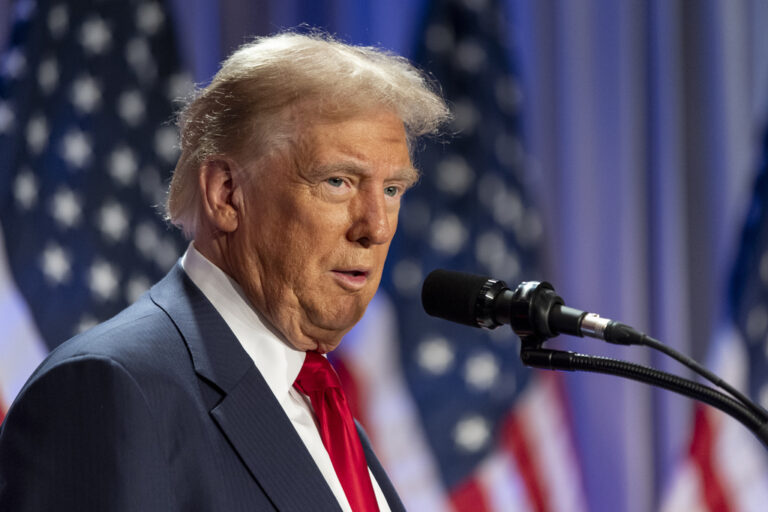 Working-age Americans are facing mounting problems when it comes to affording health care, a result of what analysts are calling a “perfect storm” of economic woes.
Working-age Americans are facing mounting problems when it comes to affording health care, a result of what analysts are calling a “perfect storm” of economic woes.
In 2007, 41 percent of working-age Americans — 72 million people — reported having medical bill problems or trouble paying off medical debts, up from 34 percent in 2005.
Another 7 million adults over 65 had similar problems, bringing the total to 79 million adults struggling to pay health-care bills, according to a new study from The Commonwealth Fund, Losing Ground: How the Loss of Adequate Health Insurance Is Burdening Working Families.
“These findings provide further evidence that the health system is falling short of where it needs to be to ensure health and economic security,” Karen Davis, president of The Commonwealth Fund, said at a Tuesday teleconference. “We need a new administration to make universal and affordable health insurance available,” she said.
Also unsettling is the fact that adults in more income groups are being affected.
“What is notable is how this is spreading up the income scale,” said Commonwealth Fund assistant vice president Sara Collins.
The survey, based on telephone interviews conducted between June 6 and Oct. 24, 2007 with 3,501 adults aged 19 and older in the continental U.S, found problems across multiple fronts:
*In 2007, nearly two-thirds of U.S. adults under 65 (116 million people) reported having problems with medical bills or debt, having put off needed care due to cost, or being uninsured or underinsured and consequently having high out-of-pocket medical costs relative to their income.
*Although such problems were seen across the board, they were particularly pronounced among low- and moderate-income families. More than half of adults earning less than $40,000 annually reported problems paying medical bills or being in debt as a result of health care expenses.
*Thirty-nine percent of people with mounting bills or debts said they had depleted their savings to pay off bills; 29 percent were having problems paying for food, heat, rent and other basic necessities; and 30 percent had accumulated credit card debt.
*Many are also foregoing medical care, including medications: 45 percent of adults reported problems getting care because of rising costs (up from 29 percent in 2001).
*One-third of respondents reported spending 10 percent or more of their income on medical costs, including premiums, in 2007, up from 21 percent in 2001.
*About one-quarter of working-age adults with medical debt owe $4,000 or more while 12 percent owe $8,000 or more in medical expenses.
*Twenty-eight percent of working-age U.S. adults (about 50 million people) were uninsured for at least part of 2007, up from 24 percent in 2001.
*Fourteen percent of working-age adults (25 million people) were underinsured, up from 9 percent in 2003.
*Sixty-one percent of those with medical bill problems or accumulated medical debt were insured at the time care was provided. “Even adults with insurance reported problems in getting needed care,” Collins noted.
Americans were experiencing the burdens outlined in the survey during a time of relative economic levity, the researchers pointed out. “Even in 2007, when the economic slow-down hadn’t really taken hold, you found that 29 percent of those with medical bill problems or accrued medical debt reported being unable to pay for basic necessities like food, heat, rent,” Davis said.
YWN Health News is updated daily, and can be viewed by clicking HERE.
(SOURCES: Aug. 19, 2008, teleconference with Karen Davis, president, The Commonwealth Fund. and Sara Collins, assistant vice president, The Commonwealth Fund; Losing Ground: How the Loss of Adequate Health Insurance Is Burdening Working Families)











4 Responses
There is nothing wrong with the health system here in the USA. We have the best docs, the best hospitals, the best everything. To prove it, why do people come HERE to be treated when they are sick!?!?!?
SOCIALized medicine will not help. Just ask people in the UK, cAnAdA, and anywhere else there is govt healthcare. If the govt decides not to treat you because “you are not worth the risk,” you are (messed up) and you will die. They dont care, whats one less person to pay for??
I have seen SOCIALized medicine ruin some of my family members where due to the government they could not get the care they REALLY needed and they suffer Ad HaYom HaZeh for it.
Another reason not to have SOCIALized medicine (AKA Government Healthcare) is that if you look at all the countries with SOCIALized medicine, you will see they pay a TON in tax money just to keep it going. I dont know about you but I think 33% of my income going to assorted taxes is already too much. I dont want to see us go back to pre Ronald Reagan tax rates of 70+ percent!!
I have to ask, are we all so very satisfied in government that we are willing to hand over our health to them?? The answer, no matter what side of the aisle you are, is NO WAY!
One more thing, it is a major lie that if you dont have money you are not treated for illness. That is 100000% shecker! I have never seen anyone denied treatment at a hospital for not having money or insurance to pay for it. How do I know? Its been me on a few occasions.
Let’s not fall for the call of SOCIALized medicine because it will KILL the country.
Our system is inadequate. In order to get the coverage that was the norm decades ago, it cost a FORTUNE.
Story #1. A divorced American woman is sitting in a clinic, Ocean Health Initiatives, with her four sons. She has a letter from Medicaid entitling her and her children for a visit. She just moved from Arkansas to NJ. The financial screener said, on the day of the appointment, in the waiting area, mind you, that she cannot have her appointment until she gets a letter from medicaid stating it is ok in NJ.
The lady responds that Medicaid is federal and she went through a lot to get to this day and see a doctor. The lady was told the office was sorry but she could not be seen today unless she obtained a letter okaying her in NJ.
I will try to be calm, but I am angered by this:
The next number picked, to see the screener, was for a Mexican woman and her children. The woman all of a sudden acted like an angel and could not be less threatening if she tried. The SAME screener smiled at her, called over an interpreter, AND SHE GOT IN TO SEE THE DOCTOR!!!! Oh, and she smiled and nodded her head to intimate she knew ZERO English, when they tried to talk to her initially in English.
In a way, Mr. Levin is right. Socialized medicine will kill the country. AND IT IS. Only for citizens who pay taxes. Illegal thieves of taxpayer monies and benefits are doing just fine.
Hopefully no one needs a doctor for ill health. But if taxpaying citizens can get the coverage and bills taken care of like the illegal thieves, then things would be less corrupt.
Even the privately insured in this country can find their coverage limited. More and more people are hitting the “lifetime limits” of coverage; most private insurance companies won’t cover more than $1 million for a specific insured. Those needing intensive care in hospital or requiring very expensive drugs can easily hit those limits, at which time they are no longer covered.
This is not to say that the American system is terrible. There are people who come here from countries with socialized medicine to get care if they can afford to do so. There are also Americans who travel to other countries for operations & rehab. But if there are ways we can make our system better, then we should.
Isn’t having uninsured people a “feature” rather than a “bug”. The problem is limited to “poor” uninsured (as opposed to rich uninsured who have no problem putting $100K on their American Express cards). If a society considers material possessions to be a sign of one’s worth as a human being (typical of secular subcultures in both American and Israel), then denying adequate medical care to the poor “culls” society of undesirables (which according to many people, including frum people who are more concerned with Torah, Mitzvos and family than in maximizing income).